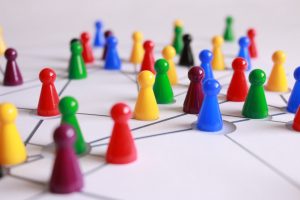
You can’t unsee gamification – it’s everywhere!
Play is so central to our lives that everyone is absorbed in games and gamification in some form or another, multiple times per day.
Those loyalty cards inciting you to collect points and those virtual badges encouraging you to buy one more thing, take one more step, or click one more button tap into our psychological needs for mastery, autonomy, relatedness, and purpose.
Play increases creativity, productivity, problem-solving, and motivation. It relieves or even cures boredom, and aids in the passing of time.
Playing games can even deliver success for market research.

Game-based research can generate response rates of over 70%, completion rates of over 90%, continuation rates of over 80%, and self-reported enjoyment of over 90%. It can also deliver richer insight to improve marketing, communications, and product development. And these are just a handful of the benefits and real-world results.
Game-based research methods can complement any research approach. Indeed, surveys, focus groups, individual interviews – all of these have the potential to benefit from gamification.

All that’s required is a mindset to approach the participant relationship as a game. Where efforts are made to provide intrinsically engaging and emotive experiences. Where design is approached with empathy. Where play is celebrated and encouraged.
This approach improves richness and detail of responses, and can even reveal untapped insights that might not be discovered through traditional research techniques. By adopting and learning about the processes inherent in games and gamification, researchers can build trust and improve relationships with research participants, something we so desperately need.

Market researchers don’t need to be game players or game experts to benefit from gamification. They don’t even need to be programmers and game designers. They simply need to understand the concepts behind gamification.
Now it’s your turn. Play games, study games, make games, and begin transforming your participant relationships and your research results.
